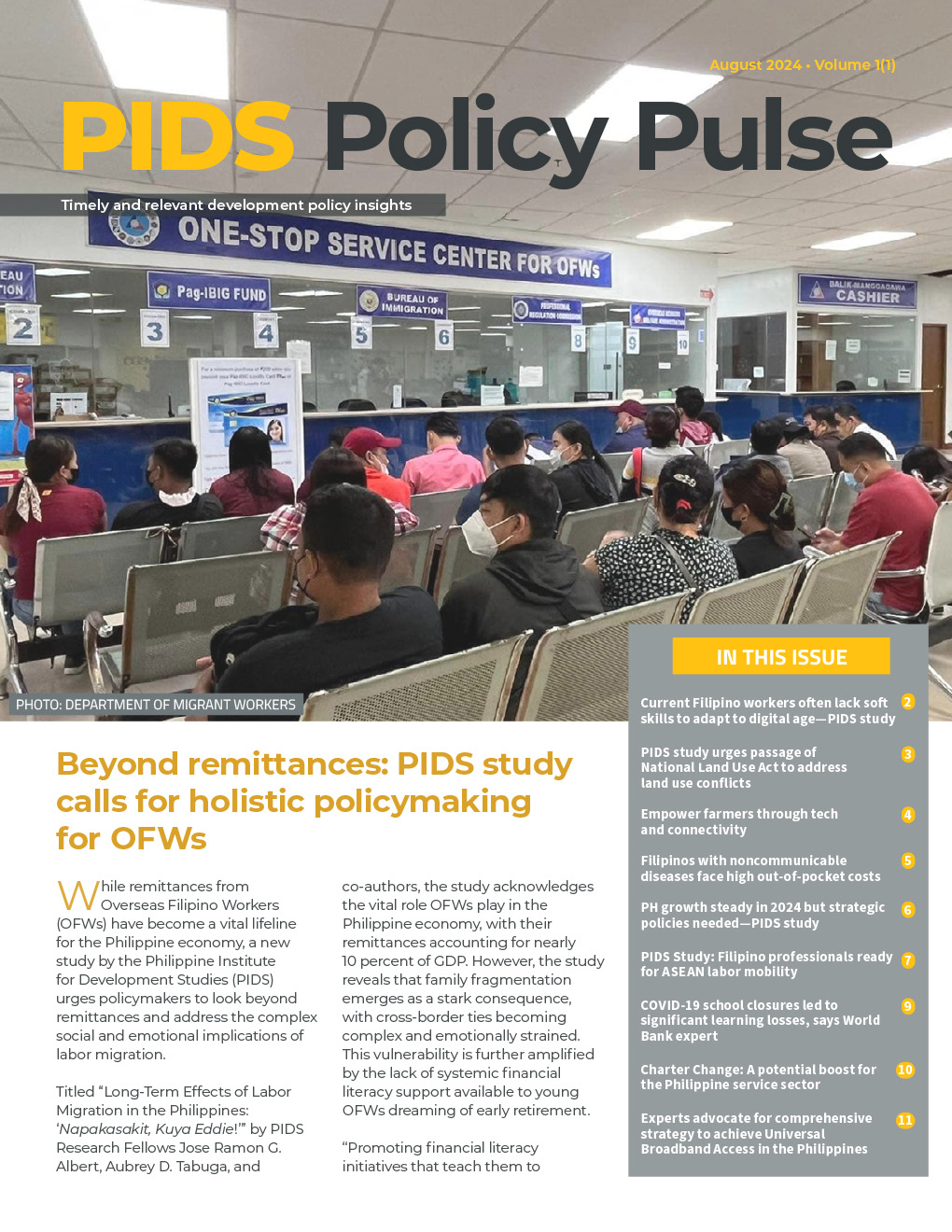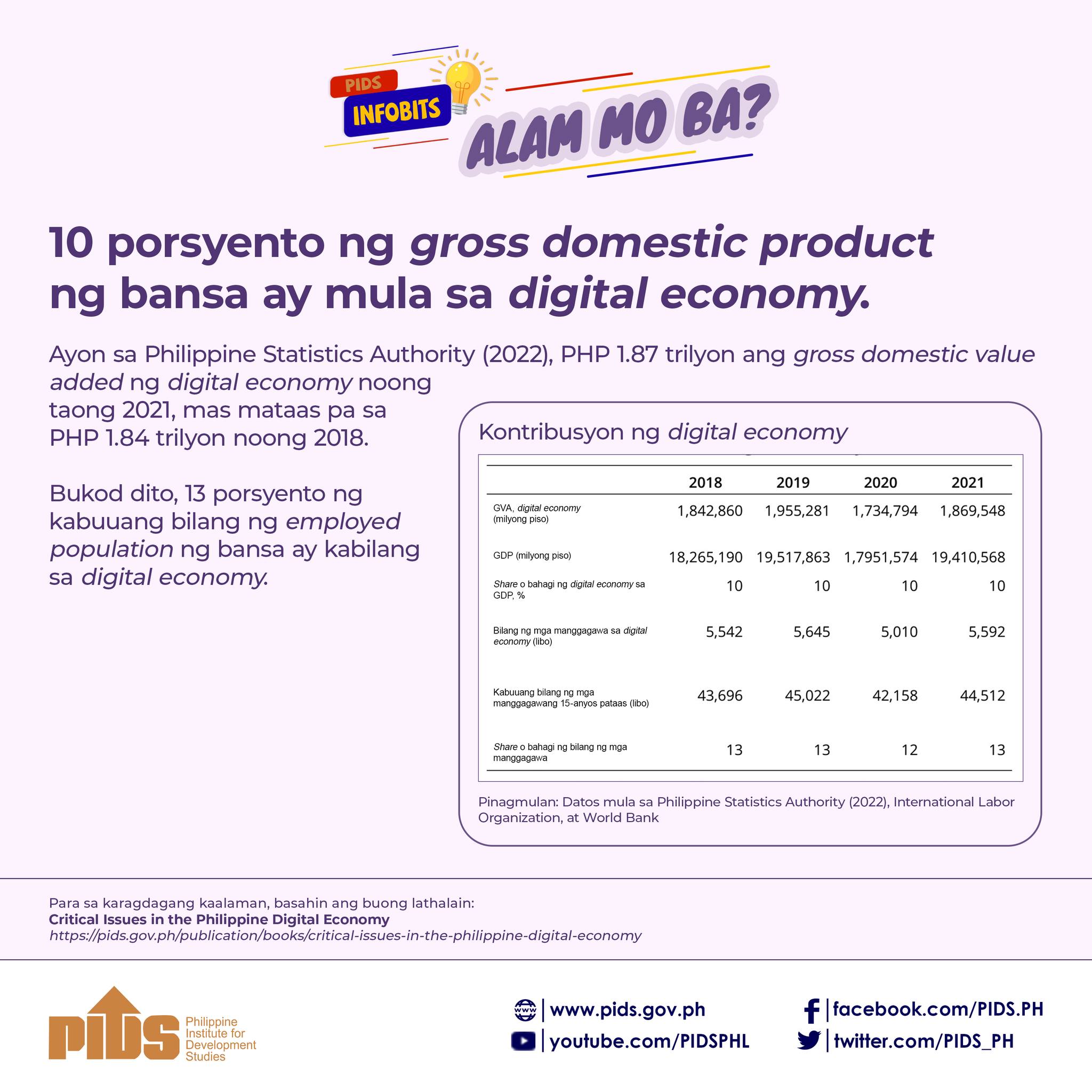Philippine leaders must create policies and programs that will assist small and medium enterprises (SMEs) to increase their participation in global value chains (GVCs), especially those that will make it easier for them to access finance and invest in innovations.
A paper released by state think tank Philippine Institute for Development Studies (PIDS) noted that getting the SMEs integrated into regional and intraregional GVCs helps them expand and grow their revenues as well as tap more markets.
It considered two export sectors in the Philippines as GVC success stories – the semiconductors and electronics industry and the business process outsourcing (BPO) industry.
The PIDS noted that research and development (R&D) investment is a key component in developing capabilities for SMEs to upgrade and expand, and increase participation in GVCs.
It said small businesses’ difficulty accessing credit also hinders them to innovate as many restrictive laws constrain them and lending institutions from engaging with one another.
The paper thus underscored the need for policymakers to develop comprehensive and centralized credit information system for both firms and banks to utilize.
The country likewise should improve the quality of transport systems and make electricity costs competitive.
The PIDS added it is also imperative to address trade barriers in the form of tariff and nontariff barriers that add cost to the product as the latter moves across regional and global chains.
It said the ASEAN is obliging its member-states under the ASEAN Economic Community (AEC) to conform to mutually agreed standards and reduce regulatory burdens in a bid to address nontariff measures.
“The quality of regulations has to be prioritized by identifying regulations that facilitate business and competition, and reforming those that hinder,” it added.
As competitive services are essential to GVC participation and upgrading, another study designed a framework for the national government to identify the necessary conditions for the transformation of various sectors of the national economy to assist local services firms become more competitive and to succeed internationally.
Investing in human capital, removing restrictions in services trade, and improving digital infrastructure are some of the elements of a comprehensive framework.
“More importantly, leaders and policymakers must focus on capitalizing on the country’s core competencies and talent-its human capital-and on recreating the right environment that is conducive to capturing value chains and to enabling the participating local firms to access higher value-added segments in the chains,” the PIDS study further said.
GVCs pertain to the life sequence of any given product or service, from its creation, transformation, transport, delivery and utilization.//
A paper released by state think tank Philippine Institute for Development Studies (PIDS) noted that getting the SMEs integrated into regional and intraregional GVCs helps them expand and grow their revenues as well as tap more markets.
It considered two export sectors in the Philippines as GVC success stories – the semiconductors and electronics industry and the business process outsourcing (BPO) industry.
The PIDS noted that research and development (R&D) investment is a key component in developing capabilities for SMEs to upgrade and expand, and increase participation in GVCs.
It said small businesses’ difficulty accessing credit also hinders them to innovate as many restrictive laws constrain them and lending institutions from engaging with one another.
The paper thus underscored the need for policymakers to develop comprehensive and centralized credit information system for both firms and banks to utilize.
The country likewise should improve the quality of transport systems and make electricity costs competitive.
The PIDS added it is also imperative to address trade barriers in the form of tariff and nontariff barriers that add cost to the product as the latter moves across regional and global chains.
It said the ASEAN is obliging its member-states under the ASEAN Economic Community (AEC) to conform to mutually agreed standards and reduce regulatory burdens in a bid to address nontariff measures.
“The quality of regulations has to be prioritized by identifying regulations that facilitate business and competition, and reforming those that hinder,” it added.
As competitive services are essential to GVC participation and upgrading, another study designed a framework for the national government to identify the necessary conditions for the transformation of various sectors of the national economy to assist local services firms become more competitive and to succeed internationally.
Investing in human capital, removing restrictions in services trade, and improving digital infrastructure are some of the elements of a comprehensive framework.
“More importantly, leaders and policymakers must focus on capitalizing on the country’s core competencies and talent-its human capital-and on recreating the right environment that is conducive to capturing value chains and to enabling the participating local firms to access higher value-added segments in the chains,” the PIDS study further said.
GVCs pertain to the life sequence of any given product or service, from its creation, transformation, transport, delivery and utilization.//











